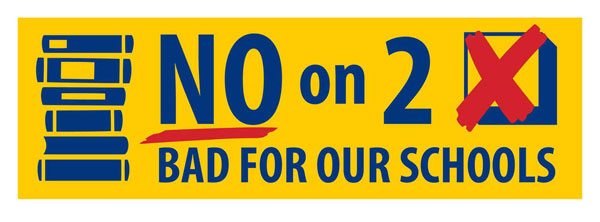
February 7, 2018; WBUR, “Edify”
In one of the most on-target reports NPQ has ever seen about what dark money can do to grassroots democracy, WBUR reporters Kathleen McNerney and Max Larkin have covered the relationship between local Massachusetts charter school advocates and Families For Excellent Schools (FES), which approached the “Yes on 2” ballot campaign that would have lifted the cap on charter school spending with tens of millions to spend and a fierce appetite for a win at the polls, but little clue about what matters to those they purported to help represent.
NPQ reported on the closing of FES last week amid charges of inappropriate behavior. Among the factors that led to the closing, one might count the precipitous loss of funding after the group settled alleged campaign finance violations with the Massachusetts Office of Campaign and Political Finance—paying a massive fine, agreeing not to engage in election-related activity for four years, and finally publishing the names of their donors to the Massachusetts campaign.
So, are charter school advocates sad to see their old ally go under? Not exactly. “The bipartisan coalition that was strongly in support of charter schools—equally Republican, equally Democrat, equally independent—has been shattered through this campaign and the tactics employed by FES,” said Marc Kenen, former executive director of the Massachusetts Charter Public School Association.
Sign up for our free newsletters
Subscribe to NPQ's newsletters to have our top stories delivered directly to your inbox.
By signing up, you agree to our privacy policy and terms of use, and to receive messages from NPQ and our partners.
McNerny and Larkin report that “FES began as a big presence in New York, smashing lobbying records there and winning over the legislature and Gov. Andrew Cuomo to force New York City to find space for charter schools. They courted celebrities, ran TV ads, and organized rallies outside the New York State Capitol in Albany.” But Boston is not New York; one unnamed advocate still involved with the charter school movement said that after a few months, it became clear that “it wasn’t going to be a partnership. It was going to be a takeover.” According to this source, Kittredge ignored the deep expertise of people on the ground and insisted on directing the campaign his way, creating an as-yet-unhealed tension in the ranks.
Sharhonda Bossier, who co-founded FES but now works at Education Leaders of Color as deputy director, says the organization may have become “addicted to winning” in the style used in New York. “Grassroots organizing work is relational, and it’s slow,” she said. “It’s not as interesting or as fun or as sexy as a big television push.”
Another staffer, unidentified in the WBUR report, says a disconnect existed between the culture at FES and the parents involved in the campaign. “It was a disrespect in particular of women, of people of color—anybody who had any kind of experience or expertise,” she said. “We had a lot of people giving us really good advice. It wasn’t taken….What they did was just kinda use parents, people like me, and give the perception that they were giving parents voice.”
“We all share some responsibility for what happened during the Question 2 campaign. Absolutely,” said one advocate. “Politically, we have been weakened…I don’t see a potential in the very near future of raising the charter school cap. I do see tremendous potential of charter schools to continue having an important role in the development of better educational models that will serve all kids.”—Ruth McCambridge
Correction: A quote in the sixth paragraph of this newswire was, through an editing error, misattributed to Ms. Bossier. NPQ apologizes for this mistake.












